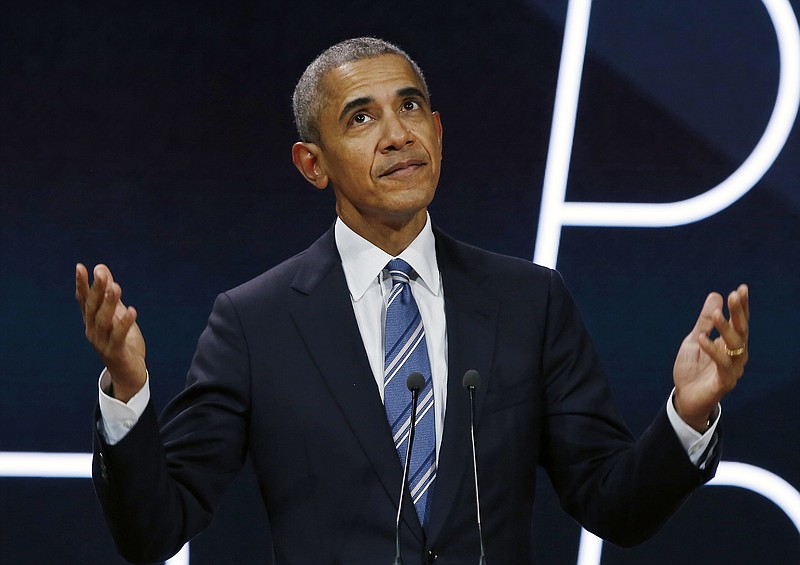It's still unknown which version of the Republican tax reform plan will emerge from a conference committee of congressmen and senators for a final vote in the coming days. A few fascinating observations, however, can be made while we watch those declaring who should and should not receive tax cuts and who should and should not pay more.
The notion offered by President Barack Obama in 2012 that "You didn't build that" is not an isolated thought or expression. While on the campaign trail, the former president contended anyone who's had business success owes part of that success to others. Let's echo the truths that individuals who succeed are part of effective teams and maximize opportunities. However, the wrong-headed belief that a successful individual is beholden to others, mostly through the pressures of guilt and shame from those who seek access to their earnings or wealth, exposes a sense of entitlement that is too prevalent in our society.
Hear me, though. Paying taxes for needed services within government is applauded and part of our civil society. Further, a civil society will provide a safety net for those needing help outside their own abilities. But the philosophy that drives a growing number of people, agencies and partisans is that success is to be celebrated and enjoyed not by the ones who put capital at risk to launch a business, not by the ones who went without a paycheck for months or years to pay the bills, not by the ones who worked 12- to 18-hour days to cover shifts and deal with surprises, not by the ones who, even in a corporate situation, worked to achieve.
No, the now-standard entitlement view defines success as resulting from an unfair advantage; therefore, you must pay more as some unspoken penalty. Success, if not through a stacked deck of privilege, must certainly come from corrupt, nefarious means, so, again, you must pay more to society because you cheated or are greedy. Or, finally, because life's lottery drew your lucky number; there's no way your own efforts or sacrifices created your accomplishment. So, cough it up! Pay your fair share in taxes because you don't deserve the earnings of your own work and sacrifice.
A virtuous society, which many despise because it finds values guiding one's actions, honors the notion of charity, benevolence and almsgiving. Entitlement, however, is rooted in the emotion of envy and the confiscation from one to redistribute to those who don't have, regardless of reasons for their lack.
On a policy level, taxation funds a government. The purpose of government is vigorously debated among partisans but inarguably has malignantly exploded beyond its constitutional powers to assume much more of a role in society than our Founders ever dreamed. Yet, in recent years, the ease in which one accesses the government to become a dependent has enticed too many from work and self-reliance. The taught belief that one is deserving of certain privileges and status has poisoned the well of achievement and self-sufficiency.
Frédéric Bastiat, the French economist and author of "The Law," stated, "Government is the great fiction, through which everybody endeavors to live at the expense of everybody else." This great fiction looms today as entitlement. The false philanthropy provided by government is funded by taxes collected to perform only enumerated powers and duties but are misappropriated outside that jurisdiction, expanding their reach and power.
So, is our current tax policy driven by envy or constitutional authority? Does a civil society progress when government determines its virtues and property?
Robin Smith, a former chairwoman of the Tennessee Republican Party, owns Rivers Edge Alliance.

